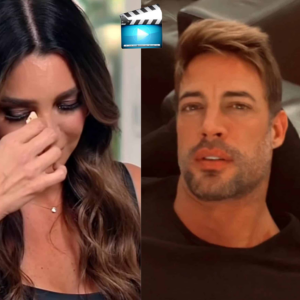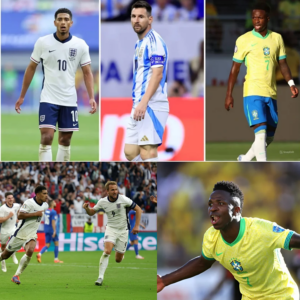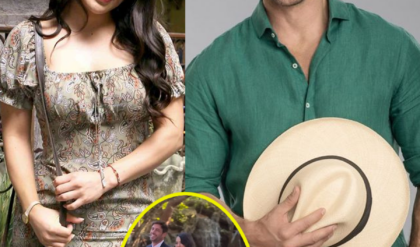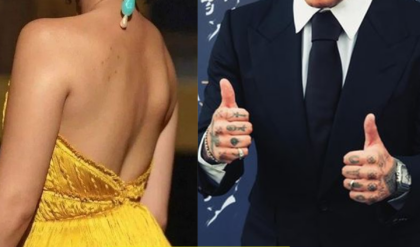En el País Vasco, aplausos apagados para la selección española de fútbol
La región se considera desde hace mucho tiempo distinta de su país y desinteresada por el equipo nacional. ¿Puede llamar la atención una plantilla de la Eurocopa 2024 plagada de estrellas vascas?

Miguel Martínez no estaba muy seguro de cómo reaccionar. El lunes por la noche se encontraba frente a un bar de Bilbao, escuchando y escuchando las conversaciones de sus colegas, con los ojos fijos en la pantalla de televisión que había en el interior. Dijo que había estado siguiendo con atención el progreso de España en la Eurocopa de fútbol y que un viaje de trabajo no iba a ser un impedimento.
Había visto los dos primeros partidos del país con su hijo de 13 años, en su casa de Sevilla. La ciudad, dijo, ha contraído una fuerte dosis de la fiebre de los grandes torneos, una enfermedad que se propaga por toda Europa cada dos años. Los balcones están decorados con banderas españolas. Las calles están llenas de camisetas españolas. Las victorias de España han provocado celebraciones desenfrenadas.
Sin embargo, hasta donde Martínez pudo ver, Bilbao era de alguna manera inmune. Había muchas banderas colgando de los balcones, pero representaban a Palestina, al Orgullo o, más comúnmente, al propio País Vasco, en forma de la tradicional ikurriña de la región. La bandera española ondeaba solo en un puñado de edificios oficiales.
El Sr. Martínez sabía muy bien por qué es así. El País Vasco, una región montañosa que linda con el Golfo de Vizcaya y los Pirineos en el norte de España, se ha considerado durante mucho tiempo distinto del resto de la nación. Tiene su propia lengua, cultura e identidad. La lucha vasca por la autonomía, incluso la independencia, tiene raíces largas y sangrientas .
Imagen

En Bilbao, las banderas más visibles son las rojiblancas que representan al equipo local, el Athletic, o la bandera vasca rojiblanca y verde, la ikurriña. Crédito… Rory Smith/The New York Times
Por eso, quiso ser respetuoso con sus anfitriones y no causar ninguna ofensa. Cuando España marcó al principio de su tercer partido de la fase de grupos, un encuentro con Albania, él y sus colegas respondieron con una breve y apagada ovación, poco más que una exhalación, en lugar del alegre abandono que podrían haber mostrado en Sevilla.
“Probablemente sea mejor ser un poco discreto”, dijo. “No sé cómo se siente la gente aquí con respecto a la selección nacional”.
Durante años, su ansiedad habría estado bien situada. Aunque España jugó su primer partido en casa en San Mamés, el estadio del Athletic Club, el equipo local fervientemente apoyado por Bilbao, en 1921 , la selección nacional masculina no ha visitado la ciudad desde 1967, aparentemente admitiendo que no era un terreno seguro. durante los años en que ETA, el grupo separatista vasco, estaba activo.
En 2014, cuando se anunció que Bilbao sería candidato a albergar varios partidos de la Eurocopa de 2020 —incluidos tres partidos “locales” de España— un destacado político vasco sugirió que tal idea inevitablemente concluiría con “ tanques en las calles ”.
Al final, la pandemia de coronavirus significó que Bilbao fuera removida de sus funciones de sede (fue reemplazada por Sevilla) cuando finalmente se llevó a cabo el torneo retrasado.
The suspicion lingered that switching the location for more amenable territory was a relief for the authorities: Athletic’s fans habitually jeer the Spanish national anthem, after all. And Andoni Ortuzar, the leader of the Basque Nationalist Party, said during the tournament that he wanted England, rather than Spain, to win.
On the surface, little has changed this year. This month, Aitor Esteban, one of Mr. Ortuzar’s colleagues, admitted he would not support Spain during Euro 2024. “My team is the Basque one, not the Spanish one,” he said. “If I am a supporter, it will be for someone else.”
Image

Forward Nico Williams, who plays for Athletic Club in Bilbao, is one of eight Spain players with Basque Country ties.Credit…Manu Fernandez/Associated Press
The absence of Spanish flags and jerseys on the streets of Bilbao would seem to suggest that plenty of others are of the same view. “For the majority of the Basque media, what happens to the Spanish national team is news, but they don’t follow it with any particular enthusiasm,” said Joseba Agirreazkuenaga, a professor in the history of the Basque Country.
(A glimpse at the newsstands the day after Spain’s defeat of Albania bore out this assessment: Spain’s national newspapers had the victory front and center. Most of their Basque counterparts mentioned it only in passing.)
To Iñaki Álvarez, though, playing soccer with his nephews on the Plaza Nueva in the heart of Bilbao’s cobbled old town, things are different. “It was more complicated 20 years ago,” he said. “There are people who support them. There are people who don’t. And there are people who don’t care. But before you wouldn’t see anyone in a Spain jersey in Bilbao. Now, there are not many, but if you do, it’s fine. It’s much calmer than it used to be.”
The fact that Mr. Martínez, for example, easily found a bar showing the Spain game was proof of that.
In 2008, the (possibly apocryphal) story goes, only one bar in Bilbao had a big screen showing Spain’s meeting with Germany in the final of that year’s European Championship: Ein Prosit, a German-themed cafe a few paces from Plaza Moyua. It was allowed to show the game, the story goes, on the tacit understanding that everyone involved wanted Germany to win.
Now, Mr. Martínez and his colleagues had a choice of half a dozen locales on Licenciado de Pozo, a street running from the city center to San Mames, along with many more in the old town.
Image

“For the majority of the Basque media, what happens to the Spanish national team is news,” a professor of Basque culture said. “But they don’t follow it with any particular enthusiasm,”Credit…Rory Smith/The New York Times
Dani Álvarez — no relation to Iñaki — works as the head of the news service at Radio Euskadi, the Basque public broadcaster. He said that change was largely testament to a series of slow-moving, tectonic shifts in Basque culture.
“There is a legacy of the years of horror we endured that has made the Basque Country very welcoming, very tolerant,” he said. “At the same time, there is a digital generation that has grown up without ETA being active, who do not understand why their parents or grandparents want Spain to lose. They now live quite naturally with a dual identity: It is perfectly easy for them to think of being both Basque and Spanish.”
But it might also, he admitted, be related to the distinctly Basque feel to the current iteration of the Spanish team. The region’s two major clubs, Athletic and Real Sociedad, based in San Sebástian, have always supplied a considerable number of players for the national side, but this year’s crop is especially rich.
Eight of the 26 players representing Spain in the tournament have roots either in Euskadi — the administrative conception of the Basque Country — or Euskal Herria, the slightly larger Basque spiritual homeland. (A ninth, Robin Le Normand, was born in France, but plays for Real Sociedad.)
Image

Luis de la Fuente, Spain’s coach, during a match against Croatia in Berlin. Credit…Dan Mullan/Getty Images
The coach, Luis de la Fuente, is from the neighboring province of La Rioja, but is Basque in a soccer sense: He spent 11 years of his playing career at Athletic, a club that even now still fields only Basque players. That connection, Mr. Álvarez said, has made it harder for fans not to want at least some parts of the Spanish side to fare well this summer.
“Players like Unai Simon and Nico Williams are not just part of the team, they are the leaders of it,” he said, referencing two Athletic stars. “They are references for Basque soccer. Their success helps bring international renown to Athletic, to Bilbao. So why would you be against a team that is full of players you love?”
Quite how far that sentiment goes, though, is not clear. Mr. Martínez and his colleagues did not face any opprobrium for their tactful celebration of Spain’s goal, but nor was there any raucous jubilation at the outcome of the game. “There are people who want Spain to win, of course,” Mr. Álvarez said. “But maybe it is a more private thing.”
A few minutes after the Spain-Albania game finished, sending Spain through to a round of 16 match on Sunday, a genuinely raucous cheer rang around the old town: the sort of unrestrained delight that tends to indicate someone, somewhere, has come down with major tournament fever.
El foco de la noticia se trasladó rápidamente a un bar con una pantalla sintonizada con el otro partido de la noche, el encuentro de Italia contra Croacia. Italia había marcado un gol de empate en el último minuto, asegurando su lugar en la siguiente ronda. El grupo de italianos que se había congregado alrededor de las pantallas para ver el partido no dudó en hacer saber a todos lo felices que estaban.
Imagen

El portero de España, Unai Simón, cuyo equipo aún no ha recibido ningún gol en la Eurocopa antes del partido del domingo contra Georgia. Crédito… Robert Ghement/EPA, vía Shutterstock
News
Noticia caliente: Elizabeth Gutiérrez está indignada con la policía de Miami por revelar información sobre su hija, ¡no le gusta el chisme! Los voy a demandar
Noticia caliente: Elizabeth Gutiérrez está indignada con la policía de Miami por revelar información sobre su hija, ¡no le gusta el chisme! Los voy a demandar William Levy y Elizabeth Gutiérrez: Entre la Polémica y los Nuevos Comienzos En un…
Radiante y Feliz en Bahamas! Lili Estefan Brilla con su Vestido Rojo Juvenil
La reconocida presentadora Lili Estefan compartió recientemente momentos de felicidad junto a su familia durante su visita a las Bahamas. Luciendo radiante en un vestido rojo que reflejaba juventud y vitalidad, Lili Estefan mostró su espíritu jovial al bailar con…
Filtran acuerdo de separación de Elizabeth Gutiérrez y William Levy
Filtran acuerdo de separación de Elizabeth Gutiérrez y William Levy Han salido a la luz detalles sobre el supuesto acuerdo de manutención entre Elizabeth Gutiérrez y William Levy tras su controvertida separación. Según reportes, la firma del acuerdo no está…
La reacción fuerte de Cazzu al ver que Ángela está intentando imitarla en todo para que Nodal la prefiera más
No tengo acceso completo al artículo que mencionas sobre Ángela Aguilar y Kazu, pero puedo ayudarte a redactar un resumen general basado en la información proporcionada: Recientemente se ha generado controversia en redes sociales en torno a Ángela Aguilar, la…
Elizabeth Gutiérrez se ARREPIENTE de haber Exhibido el VIDEO de la INFIDELIDAD de Levy
Elizabeth Gutiérrez se ARREPIENTE de haber Exhibido el VIDEO de la INFIDELIDAD de Levy Elizabeth Gutiérrez abrió su corazón en una reciente entrevista para el podcast de Alejandro Chavan, revelando detalles íntimos sobre su separación con el actor cubano William…
Carrera del Balón de Oro 2024: ¿la novena vez de Lionel Messi?
Carrera del Balón de Oro 2024: ¿la novena vez de Lionel Messi? Dado que Jude Bellingham y Vinicius Jr. no tuvieron un buen desempeño en torneos continentales, la superestrella Lionel Messi emerge con la oportunidad de ganar el título del…
End of content
No more pages to load











